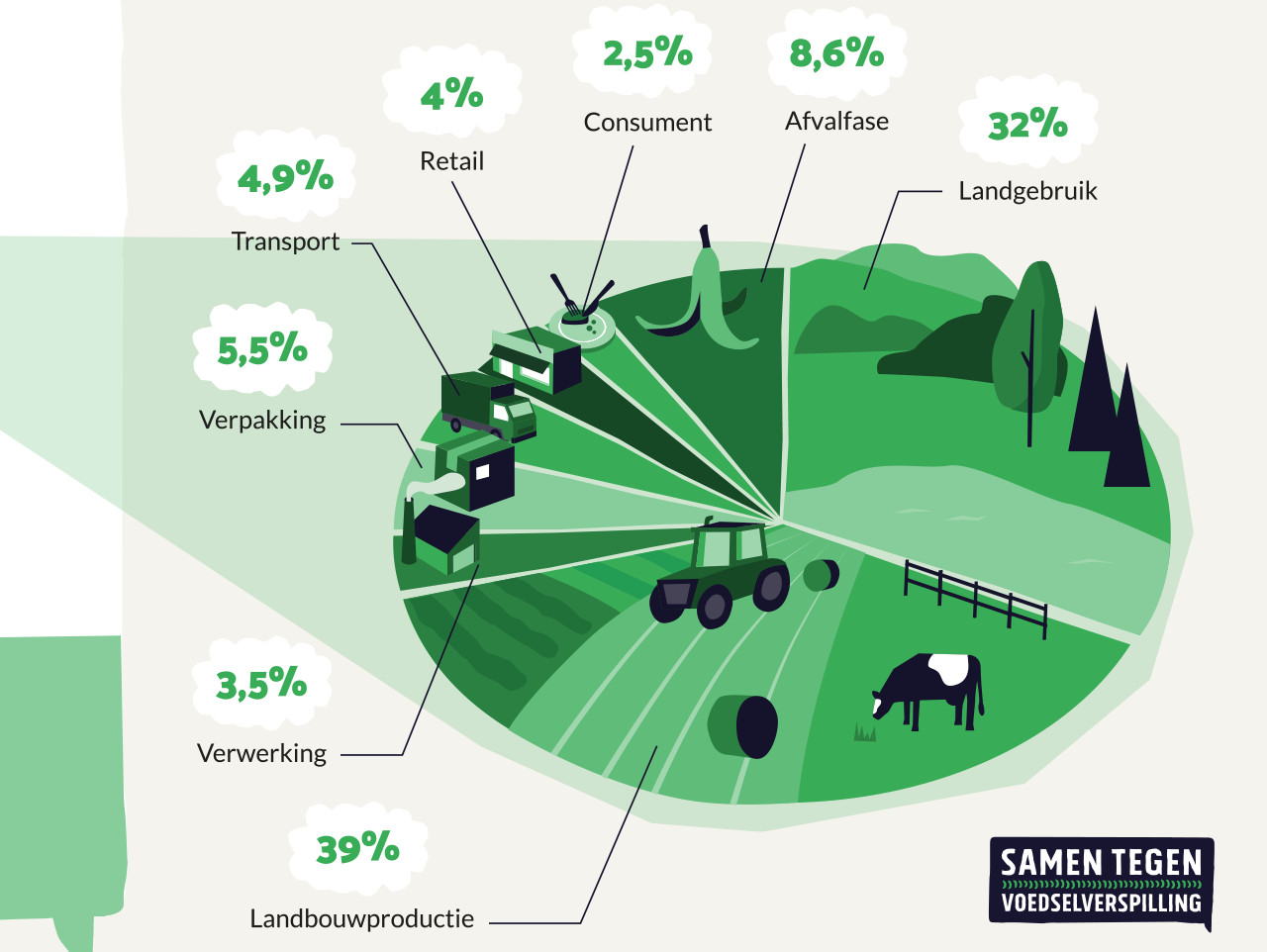
One third of global greenhouse gas emissions come from food systems. About a third of all food produced does not end up on our plates. Yet a more sustainable food system remains a blind spot in climate policy, nationally and internationally. If the Netherlands wants to achieve the European target of 55% fewer emissions in 2030, the ecological footprint of our food system, including the preservation of raw materials, must be placed much higher on the climate agenda. This is the opinion of the Foundation Together Against Food Waste. The foundation publishes a number of important international facts and figures on the link between climate change and food waste in an infographic.
Toine Timmermans: "Reducing food wastage is the number one solution to limiting global warming to 2˚C, in addition to efforts to improve welfare and education and to adopt a more plant-based diet. Yet this solution is hardly mentioned in the national climate papers. Politicians prefer to worry about problems within their own country. While Dutch producers export billions of euros worth of meat, dairy products, eggs, vegetables and fruit. On the other hand, products such as coffee beans and bananas are not grown in our low-lying little country. In short, the greenhouse gas emissions of our food system do not stop at the border post of Hazeldonk.
One of the United Nations' sustainable development goals is to reduce food waste by 50% by 2030. By keeping 1 billion kilos of good food within the chain each year in the Netherlands, we prevent approximately 3 billion kilos of greenhouse gas emissions. In several respects, this is a better solution than the large-scale storage of CO2 under the North Sea, a measure for which the government did provide a billion-dollar subsidy. Preserving raw materials in the food chain is many times more cost-effective: per tonne of greenhouse gas reduction, it requires an investment of roughly EUR 3. This compares to many tens of euros per tonne for emission rights or for investments in less effective solutions.
International policy makers do not seem to have woken up yet either. At the crucial COP26 conference in Glasgow, where world leaders are currently meeting to discuss the climate change agreement, sustainable and healthy food systems are hardly on the agenda. While they provide concrete reductions in greenhouse gases and the benefits go far beyond the environment alone. For example, how do we ensure enough, healthy food and drink for a growing world population, against a background of changing climate, less predictable weather patterns and greater social inequality?
Tackling food waste to start with is a major climate shift. It is the direct cause of one tenth of all greenhouse gas emissions worldwide. To produce food that is ultimately never eaten, more than the entire surface area of Europe is used on land and 50 times the volume of the IJsselmeer in water. It is precisely the Netherlands, as a leading international food country, that can lead the way in the transition of the food system: a win-win situation, also for the B.V. Nederland. The new cabinet would therefore be well advised to make a future-proof food system, including the reduction of raw material losses, the cornerstone of climate policy. That will have a positive impact on everyone, from an economic, social and environmental perspective.
View the Infographic 'Ons voedselsysteem heeft een enorme impact op het klimaat en de natuur' (Dutch only)
www.samentegenvoedselverspilling.nl
Source: Stichting Samen Tegen Voedselverspilling